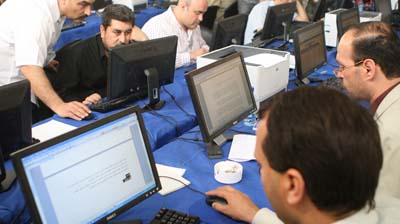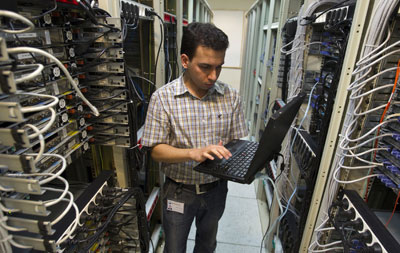
Syria, Somalia, Bahrain–where fathers bury their sons
The 17-year-old videographer Anas al-Tarsha regularly filmed clashes and military movements in the city of Homs in Syria, and posted the footage on YouTube. On February 24, he was killed by a mortar round while filming the bombardment of the city’s Qarabees district, according to news reports. The central city had been under attack for…
Weak cyber protections lead to personal, institutional risk
The Syrian civil war is also a propaganda war. With the Assad regime and the rebels both attempting to assure their supporters and the world that they are on the brink of victory, how the facts are reported has become central to the struggle. Hackers working in support of Assad loyalists this week decided to…
Two Iraqi journalists killed in Syria
New York, July 18, 2012–Two Iraqi journalists living in Syria and covering the conflict in that country were killed on Saturday although news reports differed on crucial details. The Committee to Protect Journalists continues to investigate the circumstances of the deaths, which come amid reports of increasing violence toward Iraqis living in Syria.

Deadly attack launched on Syrian TV station
New York, June 27, 2012–A number of employees for the pro-government Syrian television station Al-Ikhbariya were killed when the station was attacked by gunmen this morning, according to the official news agency Sana. Other employees were reported wounded or kidnapped, the agency said.
Journalists in exile 2012
Crisis in East Africa Fifty-seven journalists fled their country in the past year, with Somalia sending the greatest number into exile. Journalists also fled Ethiopia, Eritrea, and Rwanda–mostly for Kenya and Uganda. Exiles in East Africa must grapple with poverty and fear. A CPJ special report by María Salazar-Ferro and Tom Rhodes

Don’t get your sources in Syria killed
Because foreign journalists have been virtually banned from Syria during the uprising against Bashar al-Assad’s regime, news coverage has relied heavily on citizen journalists and international reporters working with sources inside the country. Syrians who communicate with foreign news media run the risk of being threatened, detained, tortured, or even killed.

Syria detains journalists, releases others
New York, May 14, 2012–The Committee to Protect Journalists welcomes Syria’s release of several journalists and press freedom activists over the weekend, but condemns the continued detention of at least nine journalists–and likely several more–including two journalists arrested without charge in the past month.

Most censored nations each distort the Net in own way
One big reason for the Internet’s success is its role as a universal standard, interoperable across the world. The data packets that leave your computer in Botswana are the same as those which arrive in Barbados. The same is increasingly true of modern mobile networks. Standards are converging: You can use your phone, access an…
